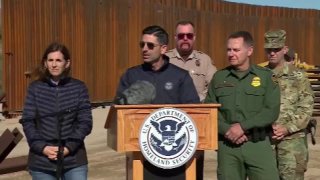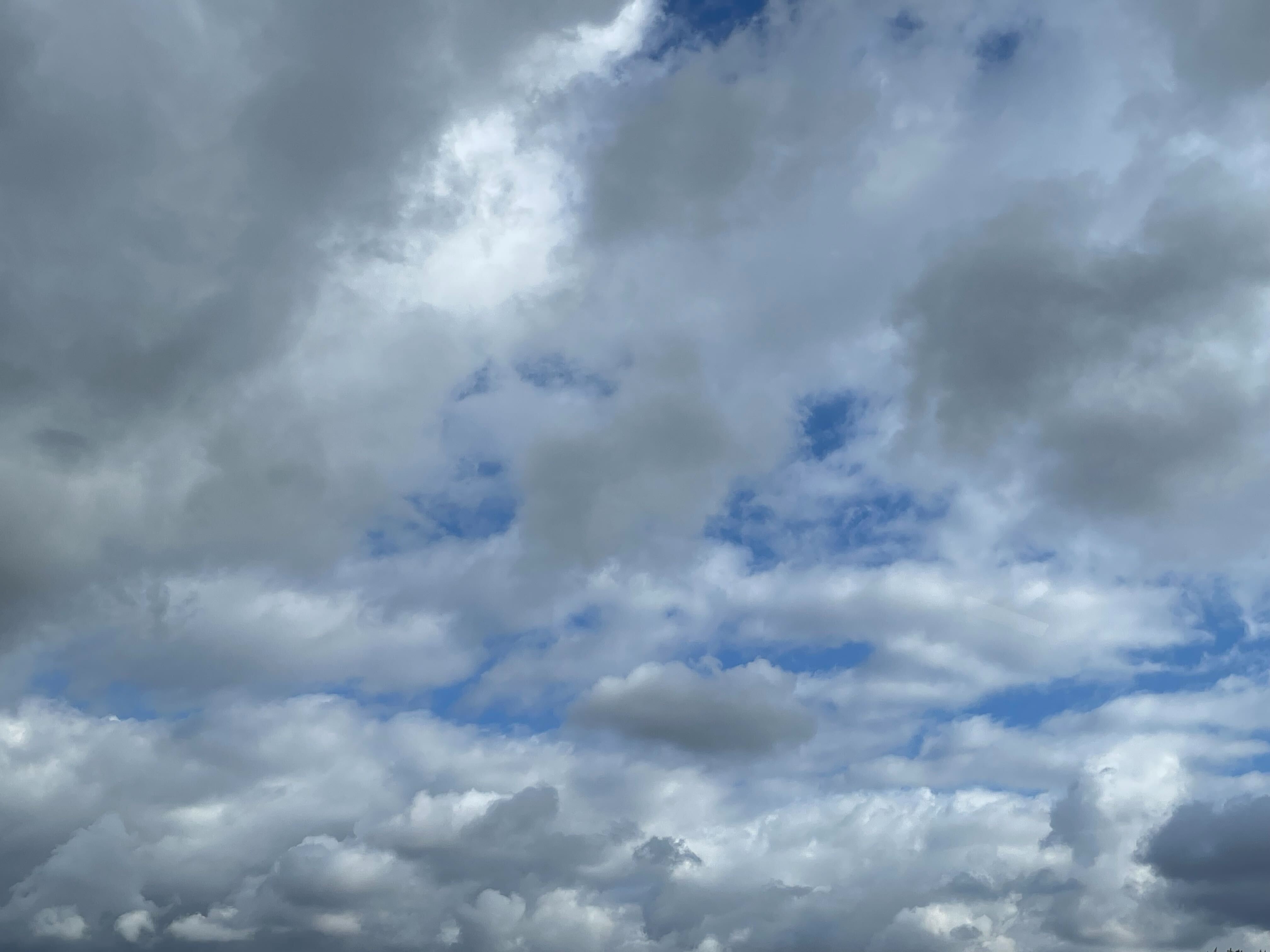
Acting Secretary of Homeland Security Chad Wolf toured the San Ysidro Port of Entry and the southwest border wall Wednesday, and met with members of various federal, state and local agencies regarding their challenges during the COVID-19 pandemic.
Wolf said one of the primary reasons he visited San Diego, as well as Nogales, Arizona on Tuesday, was to observe and hear about "the challenges of our front line officers in the COVID environment,'' he told reporters Wednesday afternoon at the San Diego U.S. Coast Guard station.
Wolf said during the pandemic, border patrol officials have taken measures to reduce the number of migrants detained at border facilities by returning those apprehended for illegal entry.
"In a pandemic environment, it is not realistic, nor is it safe, or secure to keep migrants in border patrol facilities for long periods of time,'' Wolf said.
"So the (Centers for Disease Control and Prevention) was very clear with us, with DHS and (U.S. Customs and Border Protection) that we needed to make sure we did not house those individuals in our facilities, both for our workforce protection, the protection of our DHS officers, the protection of the American people and the protection of other migrants.''
Wolf said that over the past two months, about 80% of those apprehended have been returned to Mexico in about two hours' time, "a very stark difference to what it has been in the past, where it's been several weeks, months and even longer.''
Regarding the COVID-19 outbreak at the Otay Mesa Detention Center and other U.S. Immigration and Customs Enforcement facilities nationwide, Wolf said ICE has taken measures to attempt to protect the health of detainees via social distancing, sanitation and other measures.
Local
ICE and the Department of Homeland Security have released about 900 people from ICE custody nationwide among the especially vulnerable populations, particularly the elderly and people with underlying medical conditions, Wolf said.
Wolf said most ICE facilities are down to about 75% of normal capacity. However, while Wolf said a sizable portion of the medically vulnerable population has been released, "what we're not going to do is we're not going to release all of the detainees in our care.''
"It's irresponsible to the communities that we release them into and so we're going to do this in a much more targeted effort, case-by-case basis, looking at individual cases, referring them to the public health officials, making sure that they get the medical care that they deserve, but we're going to do that in a smart way,'' Wolf said.
Otay Mesa is experiencing the largest COVID-19 oubreak among the
nation's ICE facilities.
The American Civil Liberties Union has filed a pair of class-action lawsuits calling for the release of both ICE and U.S. Marshals Service detainees housed there due to what it alleges are unsafe conditions for those most likely to die or suffer serious illness should they contract COVID-19.
While a San Diego federal judge approved the release of some medically vulnerable ICE detainees, he denied the same request for a group of medically vulnerable detainees in criminal custody.



